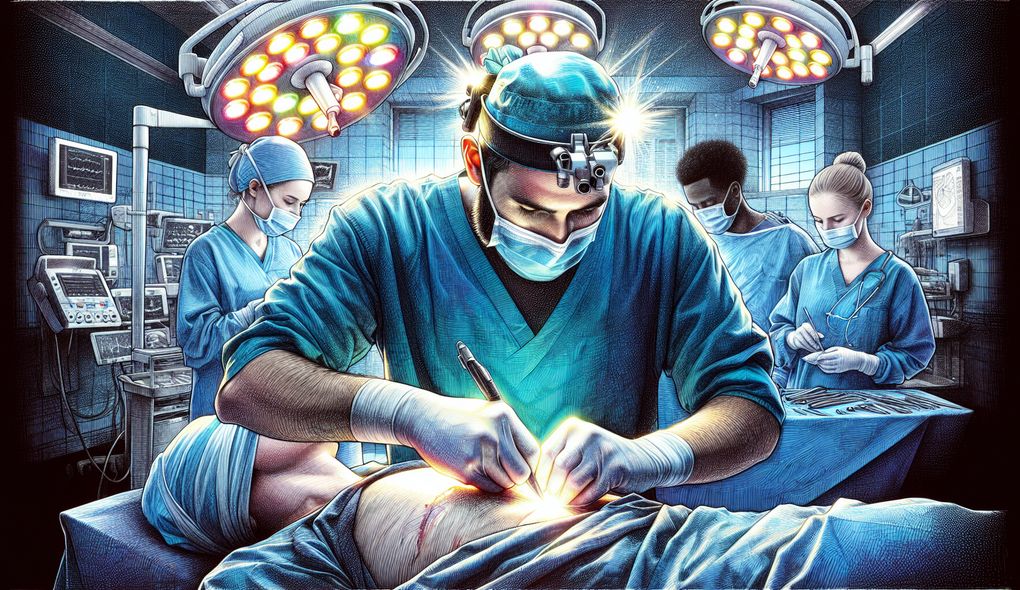Do you have experience participating in the on-call rotation for trauma surgery? How do you handle being on-call?
INTERMEDIATE LEVEL

Sample answer to the question:
Yes, I have experience participating in the on-call rotation for trauma surgery. Being on-call can be challenging, but I handle it by staying calm and focused. I make sure to always have my phone nearby and fully charged, so I can quickly respond to any emergency calls. I am well-prepared with a comprehensive knowledge of trauma care protocols and procedures, allowing me to make quick decisions and provide immediate surgical care to patients in critical condition. I have also developed strong teamwork and collaboration skills, which are crucial during on-call situations where multiple surgical cases may be happening simultaneously. Overall, I am comfortable and confident in handling the demands of being on-call for trauma surgery.
Here is a more solid answer:
Yes, I have extensive experience participating in the on-call rotation for trauma surgery. Being on-call requires excellent time management and the ability to prioritize patient care effectively. I handle being on-call by ensuring I am always reachable and prepared. I carry a dedicated on-call phone at all times and prioritize its battery life. Additionally, I stay updated on the latest trauma care protocols and procedures through continuous learning and attending conferences. This knowledge allows me to make quick decisions and provide immediate surgical care to patients. During on-call shifts, I collaborate closely with the emergency room staff, other surgeons, and medical professionals to assess patients and develop treatment plans. I believe that effective communication and teamwork are crucial in these high-stress situations. As a result, I have developed strong leadership and collaboration skills, leading to successful coordination of multiple surgical cases simultaneously. Overall, my experience, knowledge, and ability to work well under pressure make me well-equipped to handle being on-call for trauma surgery.
Why is this a more solid answer?
The solid answer provides more specific details and examples to support the candidate's experience participating in the on-call rotation and their ability to handle being on-call. It also addresses the candidate's knowledge of trauma care protocols and procedures, ability to make quick decisions, and teamwork and collaboration skills. However, the answer could still benefit from more specific examples of past experiences and achievements in these areas.
An example of a exceptional answer:
Absolutely. I have been an integral part of the on-call rotation for trauma surgery for the past five years. Being on-call requires a combination of resilience, adaptability, and exceptional surgical skills. To handle being on-call effectively, I have developed a well-defined system. I always carry a fully charged on-call phone and carry a backup charger with me at all times. I constantly stay updated with the latest trauma care protocols and procedures through continuous education, attending relevant conferences, and participating in trauma-focused research. This knowledge allows me to make quick decisions and provide the highest level of care to patients in critical condition. During on-call shifts, I closely collaborate with the emergency room staff, ensuring seamless patient flow and coordination. Moreover, I take a proactive approach by participating in regular trauma simulations, enabling me to maintain my skills and enhance my ability to manage multiple surgical cases simultaneously. By harnessing strong leadership and effective communication, I successfully lead and mentor junior surgical staff and residents during on-call shifts. Overall, my solid experience, continual learning, and dedication to trauma surgery make me confident and highly capable of handling the demands of being on-call.
Why is this an exceptional answer?
The exceptional answer includes specific details and examples that showcase the candidate's extensive experience participating in the on-call rotation for trauma surgery. It highlights their effective system for handling being on-call, which includes preparedness with a fully charged phone and backup charger. The answer also emphasizes the candidate's commitment to ongoing education, participation in trauma research, and proactive approach to maintaining skills through simulations. The mention of leadership and mentorship during on-call shifts further demonstrates the candidate's capabilities. However, the answer could still be improved by including specific achievements or notable cases the candidate has handled during on-call shifts.
How to prepare for this question:
- Study and familiarize yourself with the latest trauma care protocols and procedures.
- Practice making quick decisions and assessments in high-pressure situations.
- Take opportunities to collaborate with other medical professionals to improve teamwork and communication skills.
- Participate in trauma-focused research and stay updated with advancements in the field.
- Seek feedback on your performance during on-call situations and continuously improve based on the feedback.
- Utilize simulations and mock scenarios to enhance your ability to manage multiple surgical cases simultaneously.
What are interviewers evaluating with this question?
- Experience participating in on-call rotation for trauma surgery
- Handling being on-call
- Knowledge of trauma care protocols and procedures
- Ability to make quick decisions
- Teamwork and collaboration skills

